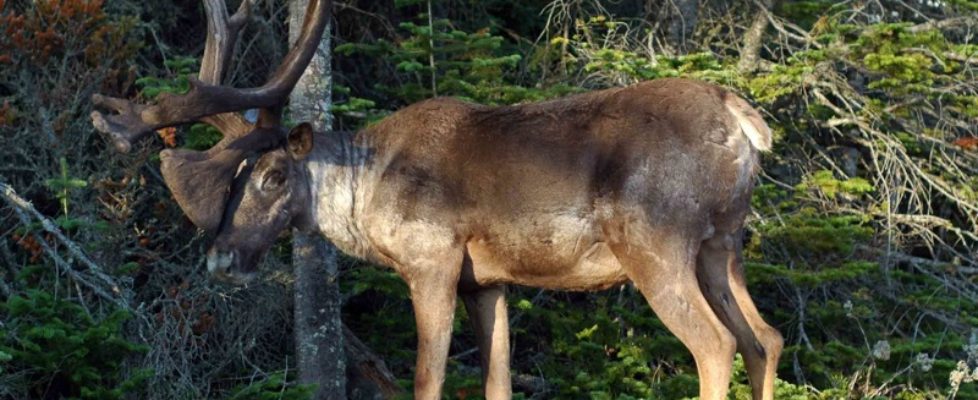Treasure Islands
There’s a reason the Slate Islands are a perennial favourite amongst Naturally Superior Adventures guests. Paddling this archipelago located 10 kilometres off the north shore of Lake Superior offers the perfect mix of sheltered paddling and exposed coast, amazing flora, fauna and geology, and rich human history. If you’re looking for a novice-friendly trip that captures the best of Lake Superior, the Slate Islands is it!
Woodland caribou, an endangered species, are common at the Slate Islands.
Paddling conditions: Evidenced by their donut-like shape, the Slate Islands were formed when the Earth’s crust rebounded from a meteorite impact 500 million years ago. This unique landform produces perfect paddling conditions: The islands’ parentheses-like shape creates bombproof shelter for calm-water paddling in all conditions within the inner islands, while the outer coast features rugged headlands and broad gravel beaches—testaments to Lake Superior’s powerful autumn storms. Regardless of the weather, there’s always paddling to be had.

Cruising the outer coast of the Slates, under the gaze of the Slate Island lighthouse.
Natural heritage: The Slates are best-known for woodland caribou, a species at risk in Ontario. Because of the islands’ isolation, a remnant population of caribou still inhabits the Slates. Numbers vary from 100 to 600 animals, related to the boom and bust cycles of vegetation. This “closed system” has given wildlife biologists a natural laboratory to study population dynamics. Certain arctic/alpine plant species, including mountain avens, encrusted saxifrage and birds-eye primrose, also thrive in the Slates isolation. That’s because Lake Superior’s perpetually cool waters create a microclimate for these cold-adapted species, whose lineage dates back to the last ice age. Meanwhile, rockhounds can’t get enough of the Slates’ unique geology—including flaky, slate-coloured rocks known as “shattercones” (formed by meteorite impact) and abandoned gold and copper mines.

Encrusted saxifrage is an arctic/alpine plant typically found 1,600 km north of Lake Superior.
Cultural history: Adolph King, the son of Slate Island lighthouse keepers, told colourful stories of growing up on Patterson Island at the turn of the 20th century. King and his brothers regularly made the 10-kilometre crossing to the mainland town of Jackfish, then a bustling railway town, by rowboat. Often, the boys returned to their island home in darkness, steering by their wits and the woefully inadequate light of a kerosene lantern. The King’s lighthouse still stands sentinel on the Slate Islands’ south shore, offering modern-day visitors a glimpse of a long-lost lifestyle.
Read adventure bloggers Dave and Deb’s (aka The Planet D) report on their adventures at the Slate Islands.
